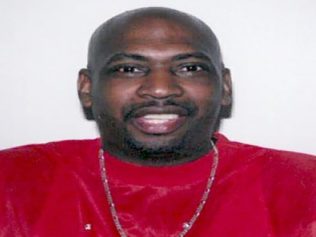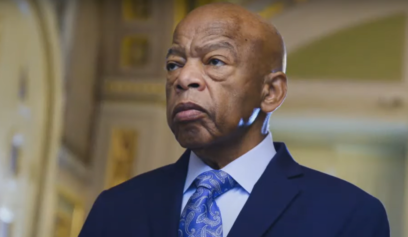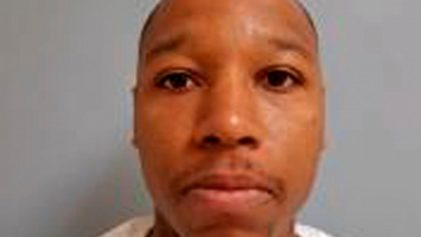Senator Elizabeth Warren has weighed in on the issue of racial injustice and inequality, with a hat tip to the #BlackLivesMatter movement.
On Sunday, the Massachusetts lawmaker gave a speech at Edward M. Kennedy Institute for the United States Senate in Boston, in which she compared the new Black-led movement to the civil rights movement of the 1960s. However, while calling for policing reform, she fell short of personally proposing specific police changes.
In her remarks, Warren spoke of the racism of the past, and the efforts by government to keep Blacks down.
“A half-century ago, when Senator Kennedy spoke of the Civil Rights Act, entrenched, racist power did everything it could to sustain oppression of African-Americans, and violence was its first tool. Lynchings, terrorism, intimidation. The 16th Street Baptist Church. Medgar Evers. Emmett Till,” she said. “When Alabama Governor George Wallace stood before the nation and declared during his 1963 inaugural address that he would defend ‘segregation now, segregation tomorrow, segregation forever,’ he made clear that the state would stand with those who used violence.”
The senator continued, listing the various tactics of oppression that were employed.
“But violence was not the only tool,” she said. “African Americans were effectively stripped of citizenship when they were denied the right to vote. The tools varied-literacy tests, poll taxes, moral character tests, grandfather clauses-but the results were the same. They were denied basic rights of citizenship and the chance to participate in self-government. The third tool of oppression was to deliberately deny millions of African Americans economic opportunities solely because of the color of their skin.”
Sen. Warren made a good effort to link various forms of oppression, including racial injustice and economic injustice, and to make connections between injustice 50 years ago and what is happening today.
“The tools of oppression were woven together, and the civil rights struggle was fought against that oppression wherever it was found – against violence, against the denial of voting rights, and against economic injustice,” Warren said. “Fifty years later, we have made real progress toward creating the conditions of freedom-but we have not made enough progress,” the senator added.
She said that oppression continues.
“Fifty years later, violence against African Americans has not disappeared,” she said. “Consider law enforcement. The vast majority of police officers sign up so they can protect their communities. But we also know – and say – the names of those whose lives have been treated with callous indifference. Sandra Bland. Freddie Gray. Michael Brown. We’ve seen sickening videos of unarmed, black Americans cut down by bullets, choked to death while gasping for air – their lives ended by those who are sworn to protect them. Peaceful, unarmed protesters have been beaten. Journalists have been jailed. And, in some cities, white vigilantes with weapons freely walk the streets. And it’s not just about law enforcement either. Just look to the terrorism this summer at Emanuel AME Church. We must be honest: Fifty years after John Kennedy and Martin Luther King, Jr. spoke out, violence against African Americans has not disappeared.”
In addition, the senator spoke of the assault on voting rights, of the Supreme Court gutting the Voting Rights Act, paving the way for measures to suppress voting by people of color.
“Today, the specific tools of oppression have changed-voter ID laws, racial gerrymandering, and mass disfranchisement through a criminal justice system that disproportionately incarcerates black citizens,” she said, calling for a restoration of the Voting Rights Act. “The tools have changed, but black voters are still deliberately cut out of the political process.”
Further, Sen. Warren discussed economic disparities, including the high Black unemployment rate, the 2008 housing collapse that hit Black families particularly hard, and the banks and mortgage lenders that payed a “racial surtax” for discriminatory lending practices, including illegally steering Black and Latino homeowners into more costly mortgages than whites with similar credit. Warren said it is time to “come down hard on predatory practices that allow financial institutions to systematically strip wealth out of communities of color.”
“The first civil rights battles were hard fought,” Warren said. “But they established that Black Lives Matter. That Black Citizens Matter. That Black Families Matter. Half a century later, we have made real progress, but we have not made enough progress,” Warren said. “Listen to the brave, powerful voices of today’s new generation of civil rights leaders. Incredible voices. Listen to them say: ‘If I die in police custody, know that I did not commit suicide.’ Watch them march through the streets, ‘hands up don’t shoot’ – not to incite a riot, but to fight for their lives. To fight for their lives.”
Warren also offered that policing must become a community endeavor, with police forces looking like the neighborhoods they serve, working with the community, equipped with body cameras and trained to de-escalate and avoid violence. Her statements over the weekend point to a lawmaker who is saying the right things on racial justice matters, and she has been credited with giving the best speech of any politician on #BlackLivesMatter. Warren–who is not running for president, but whose name has been mentioned as a presidential and vice-presidential pick– may have benefited from the missteps of Sen. Bernie Sanders and Hillary Clinton, who have had an uneasy courtship with Black activists and have faced confrontations with protesters.
However, the senator’s words cry for the need for specific policy changes that reform the mess that is America. And ultimately, this is what Black people really need–new laws to back up eloquent speeches.



